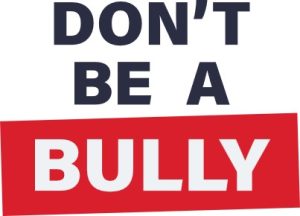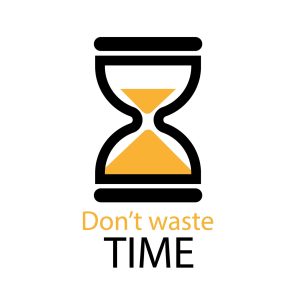Common Mistakes Child Care Business Buyers Make
Home » Mergers and Acquisitions » Buy a Child Care Business » Common Mistakes Child Care Business Buyers Make

In my 28 years of working in childcare business mergers and acquisitions, I have met and worked with thousands of childcare business buyers. From the individual buyer looking to purchase their own child care business – to the business development officers making acquisitions for large regional and national child care chain operations
You name it, and I have seen it good and bad – buyers that could not have been better to work with to those that ultimately, due to their poor decisions and actions, were told to move on by the child care business owner – the owner was no longer interested in having them purchase their child care business.
My child care business brokerage services are focused on representing the owner–seller of child care businesses. Thus, I rarely provide representation for childcare buyers. However, I have often shared with the buyer that their decisions and actions might not positively impact their ability to buy a childcare business.
If you are a buyer seeking to purchase an excellent child care business, below are some of the most common mistakes child care business buyers make – both individual and large chain child care buyers.
The unfortunate truth is…no one cares as much about confidentiality as the child care owner does. However, confidentiality breaches–even small ones– can devastate a child care business. Buyers that do not understand the negative ramifications of confidentiality breaches – or even really care about the seller’s confidentiality are, in a word, “dangerous.” 
Breaches in confidentiality can lead to the loss of teachers and staff, loss of enrollment, financial losses, and lots of trauma and drama. All of which the owner has to deal with – not the buyer. When determined that a buyer can not be trusted to protect the confidentiality or does not care about protecting the owner’s confidentiality, the only advice a child care Mergers and Acquisitions advisor can give the owner is to disengage with the buyer. And brokers have the fiduciary responsibility to share with their owner client if they have any concerns about a particular buyer and confidentiality before the buyer learns which child care business is for sale. I advise child care owners to pass on buyers that do not protect confidentiality – there are far better buyers to work with.
We have all heard the familiar saying, “The customer is always right.” Many child care business buyers have the posture that they are the customer looking to buy the child care business, and they can demand this or that; the owner must please them and adhere to their wishes because they are the customer. Obviously, this is completely the wrong attitude. I have never represented a child care business seller that was not very concerned with selling their child care business to a good buyer – the buyer that would carry on their legacy, treat their employees well, and care for the children and families. The last thing a child care owner wants to do is sell their child care business to a demanding buyer.
Child care business buyers need to understand that the owner is sizing them up to ensure they are the “right buyer.” It is up to the buyer to prove to the child care business owner that they are qualified, care, and can be trusted with the business the owner has often spent decades building. Viewing the  opportunity to purchase a child care business is much like applying for a job and making a great impression. There are dozens and sometimes hundreds of potential buyers for each child care business that comes to market. The child care business owner will go with the best buyer – the buyer they like, trust and feel good about.
opportunity to purchase a child care business is much like applying for a job and making a great impression. There are dozens and sometimes hundreds of potential buyers for each child care business that comes to market. The child care business owner will go with the best buyer – the buyer they like, trust and feel good about.
Since I specialize in child care Mergers and Acquisitions, I am contacted by hundreds (yes, hundreds and some years over a thousand) of new child care business buyers yearly. Many individual buyers and those representing a larger buying group do not have a clearly defined acquisition target. They often give a vague answer or, even worse, say it doesn’t matter when asked simple questions like:
- In what area (city, county, state) are you looking to purchase a child care business?
- What market tuition rate do you seek?
- What is the desired breakdown between public and private pay enrollment?
- What is your target purchase price range?

- How much cash (liquid capital, unborrowed funds) do you have to invest?
- What state rating/quality rating do you require?
- What licensed capacity range are you looking to purchase?
Buyers who do not know the answers to these simple questions and many other things needed to define the target acquisition are not prepared or serious.
Business brokers must quickly screen child care business buyers, determine which ones are qualified and serious, and whether they should spend time working with them. “Activity does not equate with accomplishment.” Wasting time working with unqualified business buyers means the broker has less time to work with prepared, qualified buyers that are more likely to purchase a child care business.
 Some child care business buyers view the child care business broker as the “gatekeeper.” It is the broker’s responsibility to protect the child care business owner and their business, represent the owner’s best interest, ensure the transaction proceeds in an orderly manner, and many other things that ensure things go smoothly. Some buyers take exception to the broker’s role in the transaction and the broker’s responsibility for controlling the transaction. To get their way, the buyer engages in bullying the broker. The reality is… that buyers who bully the broker, at some point, will also bully the child care owner, the child care employees, and parents – a bully is a bully. Child care owners know this and will quickly decide that the bullying buyer is not the right buyer for their business.
Some child care business buyers view the child care business broker as the “gatekeeper.” It is the broker’s responsibility to protect the child care business owner and their business, represent the owner’s best interest, ensure the transaction proceeds in an orderly manner, and many other things that ensure things go smoothly. Some buyers take exception to the broker’s role in the transaction and the broker’s responsibility for controlling the transaction. To get their way, the buyer engages in bullying the broker. The reality is… that buyers who bully the broker, at some point, will also bully the child care owner, the child care employees, and parents – a bully is a bully. Child care owners know this and will quickly decide that the bullying buyer is not the right buyer for their business.
The purchase of a child care business takes money. Yes, I just stated the obvious. However, many would-be child care business buyers spend lots of time looking at child care listings online, contacting business brokers, touring child care centers for sale, and making offers to purchase. And have not prepared to ensure they can obtain a loan to purchase a child care business.
Experienced child care business brokers will not move forward without financially qualifying the buyer. When I seek permission from a child care owner client to present their business to a potential child care buyer, they usually ask, “How much money does the buyer have? Are they preapproved for financing? As a business owner, they know a business loan is one of the hardest things to get. I advise the owner/client to pass on buyers that lack necessary funding, cannot provide the financial capacity to purchase, or have not been preapproved for funding.
Child care business owners are busy people, and so are the successful brokers representing them in selling their child care business. Do not waste their time. Business buyers that are not  prepared – no funding in place, undefined acquisition target, not really serious – just curious and looking – waste everyone’s time, including their own.
prepared – no funding in place, undefined acquisition target, not really serious – just curious and looking – waste everyone’s time, including their own.
Multiple times daily, I remind myself that my time is my most valuable asset. I must effectively utilize my time. One of the quickest ways to get on my bad side is to waste my time. Allowing a buyer to waste my time is bad enough; it is even worse to allow them to waste one of my child care business client’s time. Brokers and child care business owners quickly pass on buyers considered “time wasters”.
Endless Child Care Buyer Calls, Emails, and Letters
Once a child care business owner gives their broker permission to discuss their business with a buyer or spends time showing the buyer their business, it is important for the buyer to provide feedback to the broker. However, many buyers think, “Well, I am not really interested in the business, so I will just not follow up with the broker or take the broker’s call. Big Mistake. Out of professional courtesy, you owe it to the broker and owner to follow up and provide your feedback – even if you did not like the business or do not plan to move forward. The child care owner often waits to hear what the buyer said about their business. When the broker can only say…”I have not heard from them; the buyer has not returned my call.” To the owner, the buyer appears disrespectful and wasted their time. And the owner may question if the broker is doing a good enough job of prequalifying buyers for their business.
One of the first things you learn as a business broker is – chasing buyers never works. When buyers do not follow up and provide feedback (even negative feedback – they did not like this or that), I move on. These same buyers are usually the first to contact me when they see one of my new listings online – wanting to know all about it. What do you think are the chances I will waste my time or advise another seller client to waste their time presenting their child care business to a buyer that does not follow up or take the time to provide some simple feedback?
In our “data-driven” world, some child care business buyers’ due diligence process has increased and become burdensome, arduous, and excessive. Having been involved in Mergers and Acquisitions for 28 years, I understand the buyers’ position to some extent. However, some of the due diligence requests are just ridiculous. And, when questioned, why do you seek this information? How does this information impact your analysis and decision-making? The buyer often struggles to articulate a true need for the information requested. For example, a recent due diligence request was for a list of all employees for the last five years, date of hire, education level, rate of pay, etc., etc., etc., Given that this time period included COVID and the most extreme staffing shortage ever seen in child care, almost all centers have experienced a  “revolving HR door,” many seeing 50%+ or more employee turnover each year. A request that would have taken the child care owner hours to compile – all the employees – full-time, part-time, those hired but never showed up, temp employees obtained from staffing agencies, those that only worked a few days or weeks, the new employees that went to lunch and did not come back ☹, a very long list of previous employees. What difference does the employee base over the last five years (or even the last 12 months) make? Many centers are lucky to have any or maybe a few employees still with them from five years ago. The buyers’ focus should be on the current employee base, not the many that came and went over the years.
“revolving HR door,” many seeing 50%+ or more employee turnover each year. A request that would have taken the child care owner hours to compile – all the employees – full-time, part-time, those hired but never showed up, temp employees obtained from staffing agencies, those that only worked a few days or weeks, the new employees that went to lunch and did not come back ☹, a very long list of previous employees. What difference does the employee base over the last five years (or even the last 12 months) make? Many centers are lucky to have any or maybe a few employees still with them from five years ago. The buyers’ focus should be on the current employee base, not the many that came and went over the years.
More than ever before, when seeking permission to present their child care business to a buyer/buyer group, my owner clients want to know about the buyers’ due diligence process. Many owners refuse to permit me to present their business to those buyers with excessive, drawn-out due diligence processes. Given the large number of individual buyers and buyer groups seeking to purchase good child care businesses, sellers can choose which buyers they are willing to engage in selling their business.
The child care business buyers that make it easy “to do business with them” are the ones that brokers and child care business owners want to work with. Recently, I have seen some buyer groups revamping their due diligence list and process to lessen the burden on the child care owner. They realize that more and more data does not ensure good acquisition decisions are made – analyzing the most important data is the key to making good acquisition decisions – not more data.
The internet allows anyone, for free, to research, read and learn a great deal about buying a business, how businesses are valued, and how to obtain financing  to purchase a business. Educated business buyers normally have more realistic expectations. Having realistic expectations is very important when buying a business. A buyer must have a sufficient cash downpayment – owners will not provide large percentages of owner financing. Owners do not give away good child care businesses that they often worked for decades to build.
to purchase a business. Educated business buyers normally have more realistic expectations. Having realistic expectations is very important when buying a business. A buyer must have a sufficient cash downpayment – owners will not provide large percentages of owner financing. Owners do not give away good child care businesses that they often worked for decades to build.
Most business brokers, through their buyer registration process, will obtain information from the buyer describing the business they seek to purchase. Buyers that expect to put little to no money as a downpayment, expect to get a loan for the entire purchase price, and pay a very low price for a business generating a high profit, or are searching for the “perfect businesses,” or endless other unrealistic expectations are not the buyers’ brokers and owners want to work with. Buyers with unrealistic expectations rarely ever end up buying a business.
Buying a child care business takes work. It takes work to learn about buying a business. Becoming qualified to  purchase and operate a child care business takes work. Finding a lender to work with and prearranging the funding to purchase a business takes work. It takes work to clearly define the child care business acquisition target. It takes work to make it through the due diligence process. First-time business buyers or those looking to purchase their second location often underestimate the amount of work involved in buying a business. Most buyers never put in the time and work necessary to buy a business – many start the process, but most quit along the way.
purchase and operate a child care business takes work. Finding a lender to work with and prearranging the funding to purchase a business takes work. It takes work to clearly define the child care business acquisition target. It takes work to make it through the due diligence process. First-time business buyers or those looking to purchase their second location often underestimate the amount of work involved in buying a business. Most buyers never put in the time and work necessary to buy a business – many start the process, but most quit along the way.
 90% of business buyers indeed end up purchasing a business entirely different from what they first sought to buy – they think they want a retail store and buy a printing business. Each year many individual buyers contact me about buying a child care business. Really, they are just “exploring” the idea of owning a child care business. Some are unhappy about the child care center their child attends, and they think they could do better. Others have heard there is lots of government money in child care and they want in on it. Or someone they know owns are child care business, and they think that person is getting rich just babysitting children.
90% of business buyers indeed end up purchasing a business entirely different from what they first sought to buy – they think they want a retail store and buy a printing business. Each year many individual buyers contact me about buying a child care business. Really, they are just “exploring” the idea of owning a child care business. Some are unhappy about the child care center their child attends, and they think they could do better. Others have heard there is lots of government money in child care and they want in on it. Or someone they know owns are child care business, and they think that person is getting rich just babysitting children.
No matter their motivation – they are not dedicated to the child care industry – their passion and mission is not child care. The chances they will buy a child care business are very small. Unlike some industries and businesses, child care is unique because it is often a calling for many owners. Becoming a child care business owner is often a process – obtaining a certification or degree in early childhood education, working in a child care business, and eventually becoming a child care business owner. Most folks just don’t wake up one day and decide they want to own a child care business.
Home » Mergers and Acquisitions » Buy a Child Care Business » Common Mistakes Child Care Business Buyers Make
If you seek to purchase a child care business, I hope this information will help you void some of the most common mistakes child care business buyers make.

